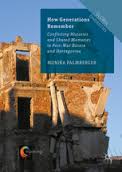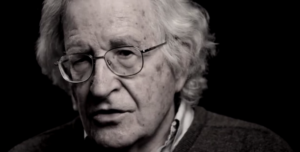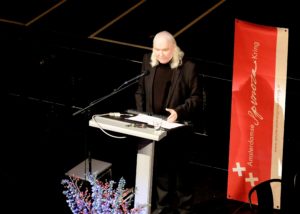EuroMemo Group ~ The European Union: The Threat Of Disintegration
![]()
Introduction
The crisis of the European Union (EU) is multifaceted and has visibly deepened during the last year. The British referendum on EU membership and the vote in favour of Brexit have only been the most explicit symptom of the disintegrative tendencies. The core-periphery rift in the euro area has continued. The arrival of a large number of refugees from the war-torn areas of the Middle East has resulted in acrimonious conflicts in the EU on the question who should take care of them. The way in which the pro-free trade forces pushed through the Comprehensive Economic and Trade Agreement (CETA) with Canada showed utter disregard for the objections of democratically elected bodies (e.g. the Belgian regions of Wallonia and Brussels).
In face of the multiple crisis of the EU, there is a relatively large consensus ranging from Social Democrats to right-wing nationalist forces to seek a flight forward towards an increasing militarisation of the EU. Otherwise, different strategies to deal with the crises can be discerned. The predominant response is muddling through. It is privileged by the majority of Christian Democrat, Social Democrat and liberal forces. This strategy continues the neoliberal mode of integration and seeks to preserve the present geographic shape of the euro area and the Schengen Zone. It will most probably not prevent the deepening of the disintegration tendencies. There are two sub-varieties of muddling through. One aims to combine it with more fiscal flexibility and more public investment. It is mainly advocated by Social Democrat forces in France and the Mediterranean. The other subvariety abandons the integrity of the Schengen Zone and rather advocates a smaller Schengen Zone with tighter border controls. It is favoured by a relatively broad range of forces particularly in Germany, Austria and Central Eastern Europe. A ‘core Europe’ conception with a smaller and more compact euro area is advocated by right-wing nationalist forces like Lega Nord in Italy, Freiheitliche Partei Österreichs (FPÖ) in Austria and Alternative für Deutschland (AfD) in Germany as well as some Christian Democrat currents. On the right of the political spectrum, there are finally ‘Europe of Nations’ concepts. They tend to advocate focusing European integration on the Single Market and linked economic regulations. The nationalist right-wing demands more spaces of national competitive strategies. Right-wing nationalist parties, like Fidesz in Hungary and Prawo i Sprawiedliwość (PiS) in Poland, regard regional funds as an essential element of integration. Some forces of the nationalist right even tend towards leaving the EU.
On the political left, there are divergent strategies as well. Some forces advocate a form of democratic European federalism. The political presuppositions of such a project are extremely demanding. Other left-wing forces do not regard democratic European federalism as a realist solution and see the EU institutions as being particularly strongly shielded against popular pressures. They propose an explicitly pro-social agenda and defying EU regulations and abandoning the euro area if this is necessary to bring about progressive policy changes. Read more
Europäische Ökonomen sehen ernste Gefahren für die europäische Integration
![]() For the complete text – in English – go to (PDF): The European Union: The Threat Of Disintegration
For the complete text – in English – go to (PDF): The European Union: The Threat Of Disintegration
Die Arbeitsgruppe Europäische Wirtschaftswissen schaftlerInnen für eine andere Wirtschaftspolitik in Europa (EuroMemo Group) veröffentlicht am Dienstag, den 24. Januar 2017, das EuroMemorandum 2017 “The European Union: The Threat of Disintegration.” 270 Ökonomen und Sozialwissenschaftler aus ganz Europa fordern darin gemeinsam einen radikalen Kurswechsel in der europäischen Wirtschafts- und Sozialpolitik.
Das EuroMemorandum 2017 offenbart ernste Gefahren für die Integration Europas: Die Polarisierung zwischen den europäischen Kernländern und der Peripherie hält an. Der Umgang mit der großen Zahl an Flüchtlingen hat zu erbitterten Konflikten innerhalb der EU geführt und die Durchsetzung des europäisch-kanadischen Freihandelsabkommens CETA machte eine völlige Gleichgültigkeit gegenüber Einwänden von demokratisch gewählten Organen deutlich. Der Brexit war nur das klarste Zeichen der Gefahren für die europäische Integration.
Die wirtschaftlichen Aussichten Europas sind weiterhin düster: Während sich die Eurozone noch lange nicht nachhaltig erholt hat, erhöhen die nachlassende weltweite Konjunktur und der Brexit die Unsicherheit noch mehr. Die zaghaften Bestrebungen der EU-Politik wie der Juncker Plan und der etwas größere fiskalpolitische Spielraum für die Mitgliedsstaaten sind bei weitem nicht ausreichend. Das EuroMemorandum 2017 fordert eine koordinierte Wirtschaftspolitik, die statt auf ausgeglichene Haushalte auf eine ausgeglichene Volkswirtschaft mit hoher Beschäftigung und den Abbau von regionalen Ungleichheiten setzt. Eine effektive Fiskalpolitik auf EU-Ebene, die in der Lage ist, Abschwünge auf EU-, nationaler und regionaler Ebene zu bremsen, und eine langfristige Investitionsstrategie sind notwendig. Strategische Lohnzuwächse würden eine gerechte Teilhabe der Arbeiter am Wachstum und stabile Inflationsraten ermöglichen. Dem Steuerwettbewerb muss eine Ende bereitet werden.
Zwar haben die deutliche Niedrigzinspolitik und die unkonventionellen geldpolitischen Maßnahmen der EZB angesichts der restriktiven Fiskalpolitik höchstwahrscheinlich einen vollkommen wirtschaftlichen Zusammenbruch infolge der Finanzkrise verhindert, doch stößt diese Politik zunehmend an ihre Grenzen. Auch ist die geplante Kapitalmarktunion kaum in der Lage, einen maßgeblichen wirtschaftlichen Anstoß zu geben und gerät infolge des Brexit ins Ungewisse, da die britischen Finanzmärkte ganz klar als Zentrum des Wertpapierhandels vorgesehen waren. Unter Vorraussetzung einer koordinierten expansiven Fiskal- und Investitionspolitik fordert das EuroMemorandum 2017 daher eine “Normalisierung” der Geldpolitik mit niedrigen, aber positiven Zinsraten.
Auch im Hinblick auf die Flüchtlingsmigration zeigt das EuroMemorandum 2017 auf, dass der Druck auf die gesellschaftlichen Ressourcen vielmehr auf die jahrelang vernachlässigte staatliche Grundversorgung in den EU-Ländern zurückzuführen ist. Finanzierungsmodelle für die Integration von Flüchtlingen und EU-Migranten, die gleichzeitig den Volkswirtschaften der Zielländer zugutekommen, sind ganz klar möglich. Das Solidaritätsprinzip innerhalb der EU bietet eine Grundlage, um populistischen fremdenfeindlichen Positionen zu begegnen.
Die Krise der EU begünstigte den Anstieg rechtsorientierter Kräfte in Europa, die sich vom nationalliberal-konservativen bis ins faschistische Spektrum erstrecken. Wirtschaftspolitisch sind die Programme der jeweiligen Parteien eher neoliberal, teilweise in Verbindung mit national-konservativen und auch heterodoxen Elementen, ausgerichtet. Klar ist die Präferenz nationaler gegenüber europäischer Lösungen. Im Zentrum der Forderungen des EuroMemorandums 2017 stehen vielmehr inklusive Reformen, die soziale und wirtschaftliche Ungleichheiten abbauen. Der territoriale Rahmen ist dabei nicht Ausgangspunkt und sollte danach bestimmt werden, wo die größten Erfolgschancen sind. In der Tat ist dies oft eher die nationale als die EU-Ebene. Angesichts der strikten institutionellen Beschränkungen innerhalb der Eurozone, müssen auch Austrittsstrategien erwogen werden.
Während die Verhandlungen zum transatlantischen Freihandelsabkommen TTIP zeitweise ausgesetzt wurden, geriet das europäisch-kanadischen Freihandelsabkommen CETA ins Zentrum der Aufmerksamkeit. Doch ist CETA im Hinblick auf Demokratie und Rechtsstaatlichkeit genauso rückschrittlich wie TTIP. Auf Ebene der Mitgliedsstaaten sollte versucht werden, die noch ausstehende Ratifizierung von CETA durch die nationalen Parlamente zu verhindern. Im Hinblick auf die Europäische Nachbarschaftspolitik sollten statt weitreichendem Freihandel, untergeordneter Integration und Militarisierung, beiderseitig vorteilhafte Kooperationen zum Beispiel auf Branchenebene eingegangen werden.
Das EuroMemorandum ist eine jährlich erscheinende Publikation der EuroMemo Group, in der aktuelle wirtschaftliche Entwicklungen in Europa kritisch analysiert und Alternativen aufgezeigt werden. Die EuroMemo Group ist ein Netzwerk von Ökonomen aus ganz Europa mit dem Ziel, darzustellen, dass es eine wirtschaftlich nachhaltige und sozial gerechtere Alternative zu neoliberalen Liberalisierungsmaßnahmen gibt.
Mehr Informationen über die EuroMemo Group finden Sie unter www.euromemo.eu
Kontakt
Stefanie Marie Scholz, M. Sc.
Koordination der EuroMemo Group
E-mail: info@euromemo.eu
The Bureau Of Investigative Journalism
 The Bureau of Investigative Journalism is an independent, not-for-profit media organisation that holds power to account. We tackle big subjects through deep reporting that uncovers the truth. We tell the stories that matter.
The Bureau of Investigative Journalism is an independent, not-for-profit media organisation that holds power to account. We tackle big subjects through deep reporting that uncovers the truth. We tell the stories that matter.
Our mission
We pursue in-depth investigative journalism to inform the public, with no corporate or political agenda. Through fact-based, unbiased reporting, we expose systemic wrongs, counter misinformation and spark change.
Our journalists dig deep, and will spend months getting to the truth if that’s what it takes. Once our investigations are complete, we give them to mainstream media outlets around the world, so they are seen by as many people as possible.
We focus on serious issues affecting our society and identify new areas of investigation through research, data, whistleblowers and contacts. We are always keen to hear from individuals, journalists and organisations interested in collaborating with us.
Our impact
Robust journalism is a crucial part of any democracy. Our stories help citizens better understand their world, give a voice to the voiceless, and hold people and organisations with power to account.
Our reports have prompted official inquiries in the UK, EU and US; influenced changes in British policy on refugees, housebuilding and care homes; and resulted in greater transparency about civilian casualties in America’s covert drone war.
The Bureau’s work has appeared in every major British newspaper and broadcaster and many international news outlets. We have produced more than 50 front-page investigations and prominent television packages, and received more than 25 journalistic awards and nominations.
Support us
Right now, public interest journalism is more vital than ever. Trust and truth are under threat and your support is needed to keep quality reporting alive.
The Bureau relies on donations from pioneering foundations and individuals who know the value of investigative journalism in a fast-changing world.
Help us to continue doing powerful reporting that scrutinises, questions, reveals and informs. Make a donation today.
Go to: https://www.thebureauinvestigates.com/about-us
Noam Chomsky On The Long History Of US Meddling In Foreign Elections
A wide range of politicians and media outlets have described the alleged Russian interference in the last US presidential election (by way of hacking) as representing a direct threat to American democracy and even to national security itself. Of course, the irony behind these concerns about the interference of foreign nations in the domestic political affairs of the United States is that the US has blatantly interfered in the elections of many other nations, with methods that include not only financial support to preferred parties and the circulation of propaganda but also assassinations and overthrows of even democratically elected regimes. Indeed, the US has a long criminal history of meddling into the political affairs of other nations — a history that spans at least a century and, since the end of World War II, extends into all regions of the globe, including western parliamentary polities. This interview with Noam Chomsky reminds us that the United States is no stranger to election interference; in fact, it is an expert in this arena.
C. J. Polychroniou: Noam, the US intelligence agencies have accused Russia of interference in the US presidential election in order to boost Trump’s chances, and some leading Democrats have actually gone on record saying that the Kremlin’s canny operatives changed the election outcome. What’s your reaction to all this talk in Washington and among media pundits about Russian cyber and propaganda efforts to influence the outcome of the presidential election in Donald Trump’s favor?
Noam Chomsky: Much of the world must be astonished — if they are not collapsing in laughter — while watching the performances in high places and in media concerning Russian efforts to influence an American election, a familiar US government specialty as far back as we choose to trace the practice. There is, however, merit in the claim that this case is different in character: By US standards, the Russian efforts are so meager as to barely elicit notice.
Let’s talk about the long history of US meddling in foreign political affairs, which has always been morally and politically justified as the spread of American style-democracy throughout the world.
The history of US foreign policy, especially after World War II, is pretty much defined by the subversion and overthrow of foreign regimes, including parliamentary regimes, and the resort to violence to destroy popular organizations that might offer the majority of the population an opportunity to enter the political arena.
Following the Second World War, the United States was committed to restoring the traditional conservative order. To achieve this aim, it was necessary to destroy the anti-fascist resistance, often in favor of Nazi and fascist collaborators, to weaken unions and other popular organizations, and to block the threat of radical democracy and social reform, which were live options under the conditions of the time. These policies were pursued worldwide: in Asia, including South Korea, the Philippines, Thailand, Indochina and crucially, Japan; in Europe, including Greece, Italy, France and crucially, Germany; in Latin America, including what the CIA took to be the most severe threats at the time, “radical nationalism” in Guatemala and Bolivia.
Sometimes the task required considerable brutality. In South Korea, about 100,000 people were killed in the late 1940s by security forces installed and directed by the United States. This was before the Korean war, which Jon Halliday and Bruce Cumings describe as “in essence” a phase — marked by massive outside intervention — in “a civil war fought between two domestic forces: a revolutionary nationalist movement, which had its roots in tough anti-colonial struggle, and a conservative movement tied to the status quo, especially to an unequal land system,” restored to power under the US occupation. In Greece in the same years, hundreds of thousands were killed, tortured, imprisoned or expelled in the course of a counterinsurgency operation, organized and directed by the United States, which restored traditional elites to power, including Nazi collaborators, and suppressed the peasant- and worker-based communist-led forces that had fought the Nazis. In the industrial societies, the same essential goals were realized, but by less violent means.
Read more
Spinoza ~ The Philosopher Of Counter-Radicalization
Spinoza Lecture 2016 – Amsterdam, November 27
Part 1 ~ Personal meaning
It’s an honour to address the Spinozakring in Amsterdam on Spinozadag. As a young man, I was living in Belfast during the darkest years of the terrorist Troubles, when I set out for Trinity College, in Dublin to begin 5 years of post-graduate research on the subject: “Spinoza’s Ethics and the Meaning of Life.”
What followed was an unequal struggle – Spinoza was even more challenging than I thought – and I didn’t find the meaning of life. In the process, I struggled, mentally. No one I met seemed the slightest bit interested in Spinoza and the more I read and understood The Ethics, the more isolated, anxious and remote from everyday life I became – as if I was going in one direction and everyone else was headed in another.
And during those difficult years, I learned new ways of thinking and Being – perspectives and insights on life and the human condition. Things that have stayed with me to this day; that made me who I am; and that will – I hope – play an important part in my future. After much difficulty, I learned to see and understand the world the way Spinoza saw it.
Spinoza became my anchor – my reference – for exploring life — a beacon of intellectual strength and independence. ‘The Philosopher of Amsterdam” – became my cultural hero in Belfast – not only for his philosophy, but for his character. And just as he was an outsider in his community, so was I.
I learned that the concept of Unity – of living with an attitude towards One-ness, cohesion, and cooperation — was central to Spinoza’s thinking and that his greatest work, The Ethics, described a path to a radical form of mental health through three mutually reinforcing forms of unity, designed to cure three kinds of division.
The first step is to heal and unite the divided self, to overcome conflicted and self-harming emotions, using his psychology; the second, is to unite us with others in strong bonds of friendship, guided by his radical humanism; the third, a cure for ontological alienation in moments of insight when our drop-consciousness joins in an oceanic experience with the eternal.
These three perspectives on human existence – the psychological, the pragmatic and the metaphysical – define why Spinoza’s thinking is so powerful.
Part 2 ~ The two truths
And this brings us to the tension at the centre of his Ethics – and indeed, the terrible contradiction at the heart of the human condition – one that generates so much religious superstition and metaphysical speculation. I’ll try and put this as clearly as possible.
The first self-evident truth of the human condition is the subjective truth of Being, how we feel as we look outwards onto the world. We’ve already beaten astronomical odds to arrive as self-conscious beings and sense the significance of our moment. The truth of our individual identity – that we are separate and distinct from everything else – places us at the centre of our universe. We instinctively prioritize our needs and drives, those we love and care for, and the projects we value. Above all, we want our chance at life to continue.
The second self-evident truth – and it is just as mysterious — is that none of this matters. From the perspective of timeless eternity, whether we live or die, whether our projects succeed or fail, what we want for ourselves and others, means nothing. Everything we value – including our lives – will be taken from us, often brutally, no matter how hard we fight, how much we care, or how good or valuable we are to Mankind. If you want to believe our lives and hopes matter in some objective way, chose a religion, but don’t read Spinoza to find the answer.
These two truths represent life and death, or more accurately, time and eternity. They’re at war with each other and define the drama of the human condition. Their conflict inspires great art, writing, theatre and music — acts of courage, love and self-sacrifice. But it also drives the dark side – depression, meaninglessness, war, suicide …. and violent extremism. The conflict is resolved in death, in that the second truth always wins – and we, as individuals – must surrender. But, it’s our defiance, our stubborn striving to hold our identity in the face of inevitable loss that makes the human condition feel like a restless, if not urgent, roller-coaster ride.
Like many great thinkers, Spinoza tries to reconcile these two truths… and he does it beautifully. He teaches us how both perspectives, both truths can be held and experienced simultaneously. He shows us a way to bring them together as a lived experience – purely for the love, strength and peace of mind — it brings us. This is his magic.
His Ethics has gifted us a strange, extraordinary, philosophy; – of this world, and yet not of this world – that makes it one of the truly great philosophical masterpieces.
Read more
Monika Palmberger ~ How Generations Remember. Conflicting Histories And Shared Memories In Post-War Bosnia And Herzegovina
 From: Introduction: Researching Memory and Generation
From: Introduction: Researching Memory and Generation
[…] The title of this book, How Generations Remember, is an allusion to the title of Paul Connerton’s seminal book, How Societies Remember (1989). In his book, Connerton opens up a timely discussion going beyond the textual and discursive understanding of remembering by concentrating on embodied/habitual memory and ritual aspects of memory. In terms of the study of generations he thus mainly discusses generations as transmitters or receivers of group memory. Although Connerton’s pioneering contribution to the study of memory is unquestioned, by focusing on how memory is passed down through the generations he primarily answers the question of how group memory is conveyed and sustained. This emphasis on transmission and persistence leaves open the question of where to locate the individual, the agent, the force and possibility for reflexivity and change (Argenti and Schramm 2010; Shaw 2010). My study, in concentrating on the role of generational positioning, reveals that past experiences inform present stances, but also shows that it is the actor in the present that gives meaning to the past. This is also true for narratives of the past that are passed on from older to younger generations, and are then scrutinised and contextualised by the latter. It is suggested that people’s sense of continuity can deal with the inconsistencies that arise with this transfer between generations. It is this field of tension between collective and personal, and between persistence and change that is central in the discussion of generational positioning in this book.
Dowload book: http://link.springer.com/book/




